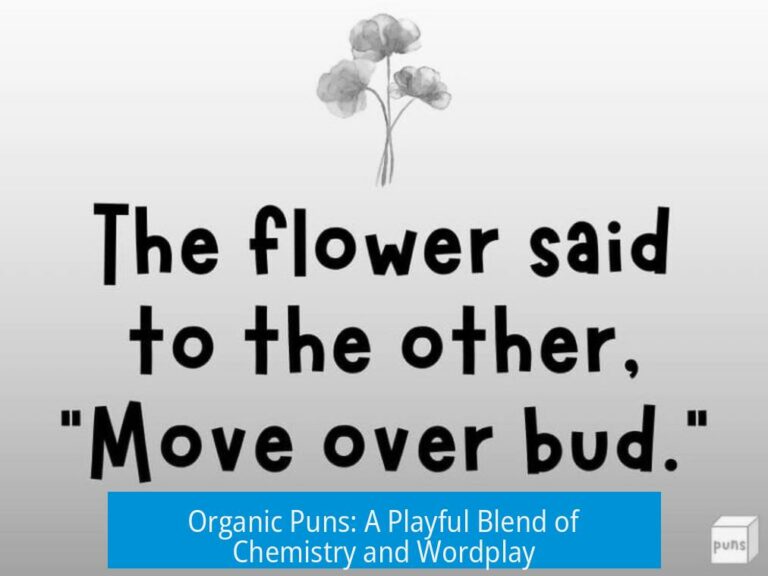What Jobs Can I Do with Organic Chemistry?

With a background in organic chemistry, one can pursue diverse career paths ranging from academic research to industrial applications in pharmaceuticals, materials, and more. The versatility of organic chemistry opens doors in laboratory roles and beyond, including regulatory and safety positions.
Academic Route: PhD and Research

Following a PhD program is a common path for organic chemists who seek advanced research roles. Typically, this involves working in a lab while completing coursework and producing original research. In the USA, students often receive a stipend funded by faculty grants or teaching assignments.
- Average duration to complete a PhD in organic chemistry is about 5.5 years.
- Graduates must contribute to their field through publications and defend a thesis.
- PhD holders generally command higher salaries due to their specialized expertise.
Entry-Level Positions: BA/BS Level Roles

Those with a bachelor’s degree can enter the workforce in research assistant roles. These positions offer practical experience and skills development, although some roles may limit long-term growth.
- Gaining research experience can help clarify career goals.
- Returning to graduate school remains an option for career advancement.
Industry Sectors Employing Organic Chemists
Organic chemists find employment across various industries:
| Industry | Examples |
|---|---|
| Pharmaceuticals | Drug discovery and development |
| Oil & Gas | Materials and catalyst development |
| Agriculture | Agrochemicals and pesticides |
| Materials Science | Polymers and green chemistry |
| Legal and Regulatory | Safety compliance, patent law |
Process development roles emphasize environmentally friendly chemical processes, an area gaining importance with green chemistry trends.
Career Progression in Organic Chemistry
Pathways include:
- Medicinal Chemistry/Drug Discovery: Synthesis and testing of small molecules targeting diseases, usually at milligram to gram scale.
- Chemical Development and Scale-Up: Transitioning lab-scale synthesis (grams) to larger scales (kilograms) under good manufacturing practices (GMP).
- Process Chemistry/Pharmaceutical Production: Managing large-scale production, sometimes involving reactors of thousands of gallons capacity.
The career journey may require time and exploration to find the best fit. It offers opportunities for engagement with cutting-edge science and impact in various sectors.
Key Takeaways
- Organic chemistry skills open diverse roles in academia, industry, and regulatory sectors.
- A PhD leads to advanced research roles and higher pay, but bachelor’s graduates have entry-level options.
- Industries include pharmaceuticals, agriculture, materials, and oil sectors.
- Career paths range from medicinal chemistry to process scale-up and production support.
- Flexibility and continued learning help tailor a fulfilling organic chemistry career.
What Jobs Can I Do with Organic Chemistry?
Wondering what jobs you can do with organic chemistry? The answer spans a wide range of industries and roles—from hands-on lab research to influencing major pharmaceutical breakthroughs. Organic chemistry opens doors you might not expect. Let’s dive in and explore the possibilities.
First off, organic chemistry is often considered the bread and butter of many scientific careers. It deals with carbon-containing compounds—building blocks of life and countless materials. So, naturally, careers involving organic chemistry tap into diverse fields. Let’s break it down, starting with academia, then moving into industry jobs and career growth paths.
1. Academic Route: PhD and Research
One classic path is pursuing a PhD. If you want to become a research guru, this route immerses you in a lab for roughly 5.5 years on average. During this time, you juggle coursework, research projects, and teaching responsibilities.
In the U.S., many PhD students earn a stipend funded by the professor’s research grants or teaching assistant roles—a nice bonus to the stress! To finish, you’ll need to publish papers and defend a thesis, proving you’ve contributed something new and exciting to the chemistry world.
Why go for a PhD? Beyond the bragging rights, it significantly increases your salary potential and responsibility level. Your specialized expertise opens doors to advanced research jobs or academic posts. But—say it with me—not everyone needs a PhD to get started in organic chemistry roles.
2. Entry-Level Positions: BA/BS Level Roles
Fresh out of college with a BA or BS in chemistry—what now? Entry-level jobs in research can be great launching pads. If you’ve got some research experience during undergrad, companies love that.
These roles often help you build essential lab skills. You’ll learn how to synthesize molecules, analyze results, and contribute to projects. But here’s the honest truth: Entry-level jobs can feel a bit limiting in responsibility and salary.
The good news? They let you test the waters. Not sure if lab work is your real passion? Give it a try, and if it doesn’t click, graduate school or other career shifts remain options. Starting somewhere is better than waiting forever for the “perfect” job.
3. Industry Sectors Employing Organic Chemists
Here’s where the magic happens—industries actively hiring organic chemists include:
- Pharmaceuticals, where drugs are designed and tested.
- Oil and petrochemicals, focusing on fuels and lubricants.
- Materials science, developing polymers and plastics.
- Agrochemicals, crafting fertilizers and pesticides.
- Research institutes and higher education.
- Explosives manufacturing—yes, chemistry can be explosive!
- The broader chemical industry, which touches almost everything around us.
One specialized area gaining attention is green chemistry. If you care about sustainability and reducing toxic waste, look into process development jobs where you improve chemical processes to be eco-friendly.
By the way, organic chemists don’t always stick to labs. Careers in legal fields (think patent law), safety compliance, or regulatory affairs offer an alternative path without pipettes or test tubes.
4. Career Progression Examples in Organic Chemistry
Want a feel for how a career in organic chemistry might evolve over time? Here’s a real-world-like trajectory:
- Medicinal Chemistry / Drug Discovery: Early career scientists often jump into drug discovery. That means designing and synthesizing small molecules, testing structure-activity relationships (SAR), and producing compounds in scales from milligrams to around 10 grams.
- Chemical Development and Scale-up: After a decade or so, some move into development—scaling reactions to larger quantities in kilo labs (50 grams to 50 kilograms) and working with good manufacturing practices (GMP).
- Process Chemistry / Pharmaceutical Production: Later stages might have you supervising manufacturing-scale processes, handling reactors that are 2,000 gallons or more, ensuring drug production runs smoothly and safely.
These steps imply organic chemistry is a marathon, not a sprint. Finding a niche and growing your expertise takes time. But the journey offers excitement, variety, and impact.
So, What Jobs Can You Actually Do with Organic Chemistry?
From the facts above, here’s an overview of specific roles:
- Research Scientist: Conduct experiments in pharma, materials, or agrochemical labs.
- Process Chemist: Optimize procedures for large-scale production.
- Medicinal Chemist: Design and test drug candidates.
- Chemical Engineer (with added qualifications): Focus on scaling up reactions and improving processes.
- Regulatory Affairs Specialist: Ensure products meet legal and safety standards.
- Patent Agent/Attorney (with extra training): Protect intellectual property around new chemical inventions.
- Educator/Professor: Teach and lead research in universities.
The diversity of paths means organic chemistry isn’t a one-trick pony. It’s an impressive toolset that opens doors across science and beyond. And if you enjoy puzzles, lab coats, and a dash of problem-solving thrill, it could be your perfect field.
Tips for Navigating Your Organic Chemistry Career
- Get Research Experience Early: Internships and undergraduate projects boost your resume.
- Consider Graduate School: It deepens expertise and often unlocks higher-paying jobs.
- Network in Industry: Attend conferences, join professional groups like the American Chemical Society.
- Stay Open to Roles Outside the Lab: Regulatory, legal, and safety roles offer balance and new skill sets.
- Explore Specialized Fields: Green chemistry and process development are growing niches.
In conclusion, what jobs can you do with organic chemistry? The spectrum ranges from entry-level lab positions to PhD-requiring research roles, spanning industries from pharmaceuticals to environmental science. Whether you want to craft lifesaving drugs or invent eco-friendly materials, a chemistry background creates a robust foundation. So suit up, grab that beaker, and start mixing your future!
What entry-level jobs can I get with a bachelor’s in Organic Chemistry?
With a BA/BS in organic chemistry, you can start in research roles. These positions help build skills. They vary by company and may limit growth. You can also return to school later if needed.
Which industries hire organic chemists?
Organic chemists work in pharma, oil, materials, agrochemicals, explosives, and education. Roles also exist in green chemistry, process development, and manufacturing sectors.
Can I work outside the lab with an organic chemistry degree?
Yes. Apart from lab roles, jobs exist in legal, safety, and regulatory fields. These roles use chemistry knowledge in non-research settings.
How does a PhD in Organic Chemistry affect career options?
A PhD often leads to higher pay and advanced research roles. It requires several years of study, publishing research, and defending a thesis.
What career paths exist after initial research in organic chemistry?
You could move from medicinal chemistry in drug discovery to chemical development or process chemistry. The scale and complexity of projects increase over time.




Leave a Comment